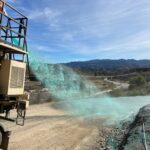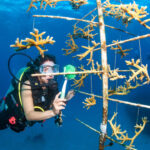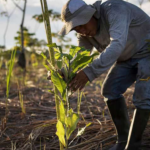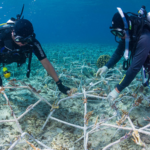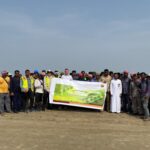Environmental Studies
Environmental Studies Services encompass a wide range of activities aimed at assessing, managing, and protecting the environment. These services support sustainable development by ensuring compliance with environmental laws, minimizing pollution, and promoting conservation efforts.
Carbon footprint case studies and Mitigation methods
Many of our daily activities cause emissions of greenhouse gases. For example, we produce greenhouse gas emissions from burning gasoline when we drive, burning oil or gas for home heating, or using electricity generated from coal, natural gas, and oil. We believe carbon capture and storage is a central part of efforts to reduce CO2 emissions, whilst ensuring the world can continue to thrive.
The Case Study will generate a comprehensive report with a set of recommendations for effectively managing and reducing the Carbon Footprint of on Facilities. The Case Study shall describe a process for capturing CO2 from the atmosphere in an industrial plant. The Case Study shall explore the possibilities and challenges of using carbon removal to combat climate change. The Case Study will focus on below two methodologies for Managing Carbon Footprint by Carbon Capture Utilization and Storage (CCUS) – Direct Air Capture – Natural Based Solutions (NBS) such as Mangrove Plantation and Trees plantation to offset 30-40% of emission.
Ecological Survey
A preliminary ecological appraisal (also known as an Extended Phase I Habitat Survey) is an ecological assessment method which evaluates the existing ecological value of a site and identifies any ecological constraints to a proposed development.
There is a wide scope of different assessments which constitute an Ecology Survey, these span from basic Ecological Scoping Surveys to more specific and detailed NVC (National Vegetation Classification), Hedgerow, Botanical, River Corridor, Protected Species, Invasive Plant Species and Ecological Assessments.
Environmental Baseline Studies
Environmental baseline studies (EBS) are essential for assessing the existing conditions of an environment before any major project or development takes place. These studies provide a benchmark for evaluating potential environmental impacts and developing mitigation strategies. By conducting EBS, organizations and governments can ensure sustainable development, compliance with environmental regulations, and the protection of natural resources.
EBS are particularly critical for large-scale infrastructure projects such as mining, oil and gas exploration, construction, and industrial expansion. They help in identifying potential risks, setting environmental management plans, and ensuring that ecological balance is maintained. Without baseline studies, it would be difficult to measure environmental changes over time or implement effective mitigation measures.
These studies also serve as an important tool for community engagement, as they provide transparency regarding environmental conditions and potential project impacts. By incorporating local knowledge and scientific data, EBS contribute to more informed decision-making processes and foster responsible environmental stewardship.
Environmental Impact Assessment
Environmental Impact Assessment (EIA) is a systematic process used to evaluate the potential environmental consequences of proposed projects, developments, or policies before they are approved and implemented. The primary objective of EIA is to identify, predict, and mitigate negative environmental impacts while maximizing positive benefits. By integrating environmental considerations into decision-making, EIA ensures sustainable development and responsible resource management.
EIA is a critical tool for governments, businesses, and communities as it helps prevent environmental degradation, safeguard biodiversity, and promote social well-being. It also facilitates regulatory compliance by ensuring that projects meet environmental standards and legal requirements.
Your Gateway to a Sustainable Future.
Our expertise includes, but is not limited to,

Carbon footprint case studies and Mitigation methods
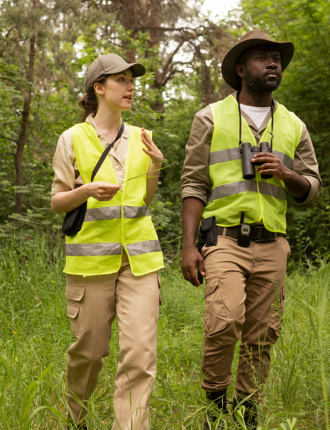
Ecological Survey

Environmental baseline studies
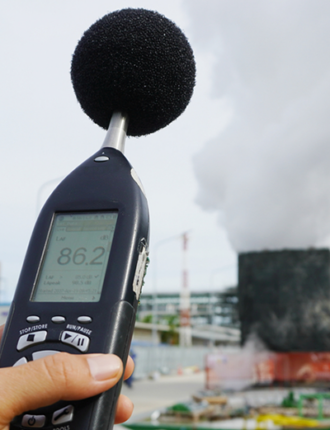
Environmental impact assessment
From Assessment to Action – Restoring Nature, One Step at a Time!

Assessment & Survey
Conduct ecological surveys to analyze biodiversity, habitat conditions, and environmental impact.

Planning & Strategy
Develop targeted restoration plans, including afforestation, coral reef rehabilitation, and carbon footprint reduction.

Implementation & Action
Execute restoration projects like mangrove planting, habitat conservation, and pollution mitigation.

Monitoring & Sustainability
Track progress, measure ecosystem recovery, and ensure long-term environmental resilience.
Where nature thrives and the alpine spirit flourishes—preserving beauty, sustaining life!


From Assessment to Action – Restoring Nature, One Step at a Time!
Browse the topics below to find what you are looking for.
GreenVision KSA offers comprehensive environmental studies, including Environmental Impact Assessments (EIA), Environmental Baseline Studies (EBS), ecological surveys, and carbon footprint case studies. These services support sustainable development by ensuring compliance with environmental laws, minimizing pollution, and promoting conservation efforts.
An EIA evaluates the potential environmental consequences of proposed projects before approval. It identifies, predicts, and mitigates negative impacts while maximizing positive benefits, ensuring sustainable development and responsible resource management.
EBS assess existing environmental conditions before major developments. They provide benchmarks for evaluating potential impacts and developing mitigation strategies, ensuring sustainable development and compliance with environmental regulations.
Ecological surveys evaluate the existing ecological value of a site and identify any constraints to proposed developments. They include assessments like habitat surveys, protected species evaluations, and invasive plant species identification.
GreenVision KSA conducts carbon footprint case studies and implements mitigation methods such as Carbon Capture Utilization and Storage (CCUS), Direct Air Capture, and Nature-Based Solutions like mangrove and tree plantations to offset emissions.
NBS involve using natural processes to address environmental challenges. GreenVision KSA employs NBS like mangrove and tree plantations to offset carbon emissions and enhance biodiversity.
GreenVision KSA’s environmental studies support Vision 2030 by promoting sustainable development, environmental protection, and compliance with regulations, contributing to the Kingdom’s environmental restoration and decarbonization initiatives.
Industries such as construction, oil and gas, and manufacturing can benefit from GreenVision KSA’s services to ensure environmental compliance, minimize impacts, and promote sustainability in their operations.
MAKE AN IMPACT
Contact Us
Al Kadi Tower,Ist Floor, Room No.7, Building No.2191, Zuhair bin Qais Street, An Nada, Dammam – 34263
Got A Question?
Please complete the form below.
We’ll follow up with you in 6Hrs.




